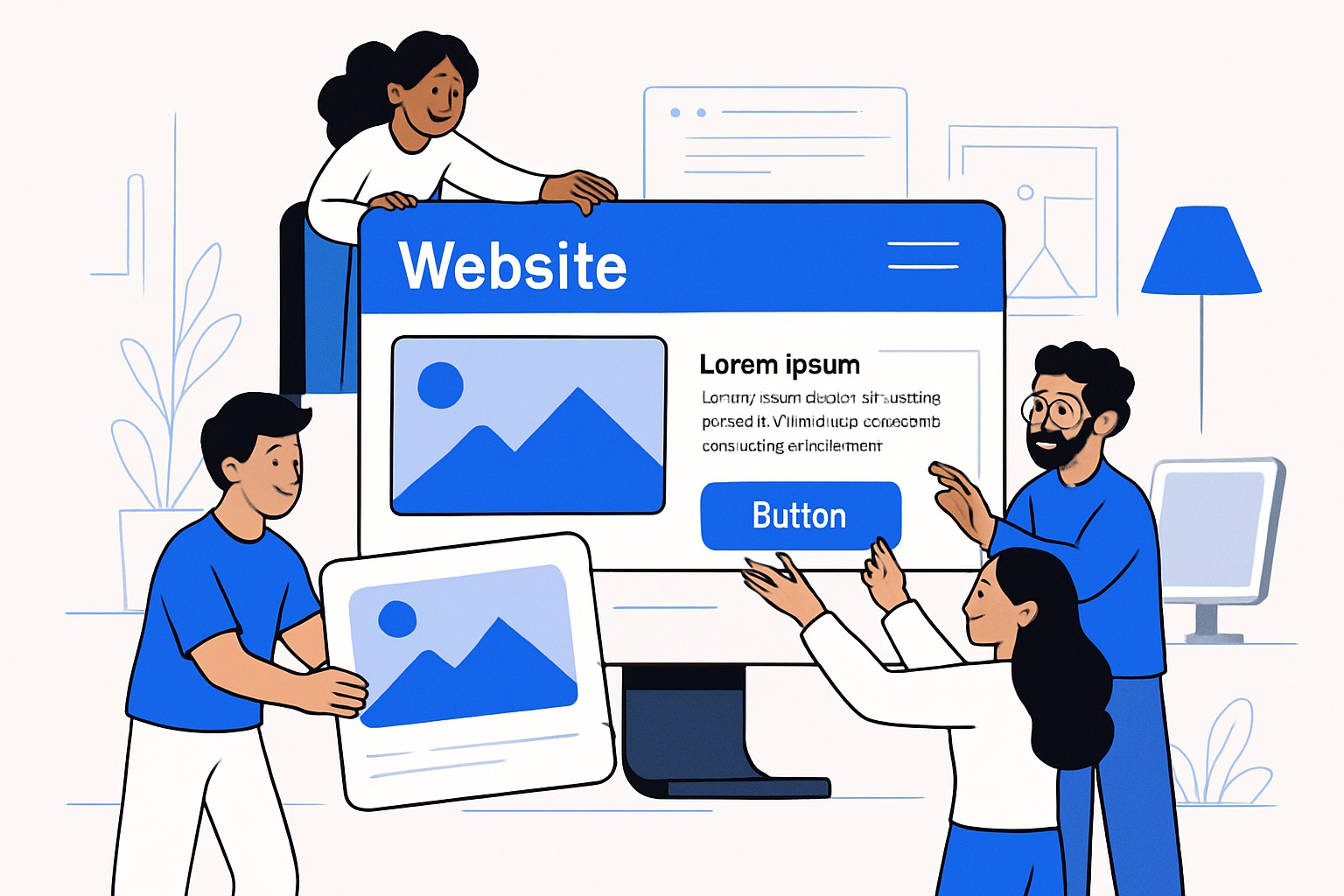The tech world is buzzing as nocode startups continue to break barriers and empower businesses of all sizes. These platforms are transforming how products get built, letting anyone—from entrepreneurs to enterprise teams—create software without writing a single line of code.
No-code means building apps, workflows, and websites using visual tools. This shift makes innovation faster, more affordable, and accessible to people with big ideas but little technical background.
In this article, we’ll spotlight the 7 most promising nocode startups to watch in 2025. You’ll discover what makes each one unique, including their standout features, pricing, target users, and the value they bring to the table.
Curious about the future of software development? Dive in to see which nocode startups are set to shape the tech landscape.
What Makes a No-Code Startup Stand Out in 2025?
The landscape for nocode startups has changed dramatically in recent years. What once began as simple website builders has now evolved into platforms that power sophisticated business processes, automate workflows, and drive innovation across entire industries.
So, what exactly makes a nocode startup shine in 2025? Let’s break down the evolution, essential evaluation criteria, major trends, and the challenges and opportunities shaping this dynamic space.
The Evolution of No-Code Platforms
Nocode startups have matured far beyond their origins. Early platforms like Wix and Squarespace introduced drag-and-drop website creation, removing barriers for non-technical users. Fast forward, and today’s nocode startups offer tools for building complex web apps, automating business processes, and integrating with enterprise systems.
Key milestones include the rise of platforms such as Bubble and Airtable, which empowered users to create fully functional SaaS products and internal tools. Companies that embraced nocode early—like Lambda School and Comet—scaled rapidly, demonstrating the technology’s ability to support real business growth.
This evolution means nocode startups now cater to everyone, from solo entrepreneurs to large enterprises, and the possibilities for what can be built are expanding every year.
Core Criteria for Evaluation
To stand out, nocode startups must deliver on several core criteria. Here’s a quick comparison:
| Criteria | Why It Matters |
|---|---|
| Scalability | Supports growth and high user loads |
| Feature Set | Offers robust tools for diverse use cases |
| Integration | Connects seamlessly with other platforms |
| Community Support | Provides resources, forums, and knowledge base |
| Security | Protects data with strong protocols |
| User Experience | Ensures a simple, intuitive interface |
| Pricing Transparency | Helps avoid hidden costs and plan for scale |
A gentle learning curve is key, as is the ability to customize and iterate quickly. Transparent pricing builds trust, especially for startups and enterprise buyers making long-term commitments. Nocode startups that excel in these areas are best positioned for 2025.
Industry Trends Shaping No-Code Startups
Several trends are driving the next wave of nocode startups. First, AI and automation are being woven into platforms, making it easier to build smarter, more adaptive apps. Second, industry-specific solutions are emerging—think healthcare, fintech, and education—allowing users to launch specialized products without custom development.
Market research shows explosive growth ahead. According to No-Code Market Growth Statistics 2025, the global no-code platform market is forecast to reach billions in value, with adoption rates climbing across all sectors.
If you’re watching nocode startups, these trends are shaping which platforms will lead and which will follow.
Challenges and Opportunities Ahead
Nocode startups still face hurdles. Some platforms have limitations on customization or advanced functionality, making them less ideal for highly specialized needs. Vendor lock-in can also be a concern, as migrating away from a chosen platform isn’t always straightforward.
Yet the opportunities are immense. Nocode startups democratize technology, empowering people without a technical background to build, launch, and scale digital products. This accelerates digital transformation for businesses of all sizes.
Take, for example, a retail company that rapidly scaled its inventory management using nocode tools—saving months of development time and thousands in costs. In 2025, the pivotal shift is clear: nocode startups are bridging the gap between ideas and execution, making innovation accessible to everyone.
7 Best Nocode Startups to Watch in 2025
The landscape of nocode startups is evolving at lightning speed, and 2025 is shaping up to be a breakout year. With new players and established platforms pushing boundaries, businesses of all sizes are finding unprecedented ways to innovate—no coding required. This curated list spotlights the 7 most promising nocode startups to watch, each bringing something unique to the table.
Whether you’re a founder, product manager, or enterprise leader, these platforms offer powerful tools to turn ideas into reality, fast. Let’s dive into what sets each one apart, who they serve best, and why they're leading the nocode startups revolution.
Big House Technologies
Big House Technologies stands out among nocode startups as a premier agency specializing in both nocode and AI-driven development. By leveraging platforms like Bubble and Lovable’s AI, they deliver scalable, end-to-end solutions for businesses that need to move fast without sacrificing quality.
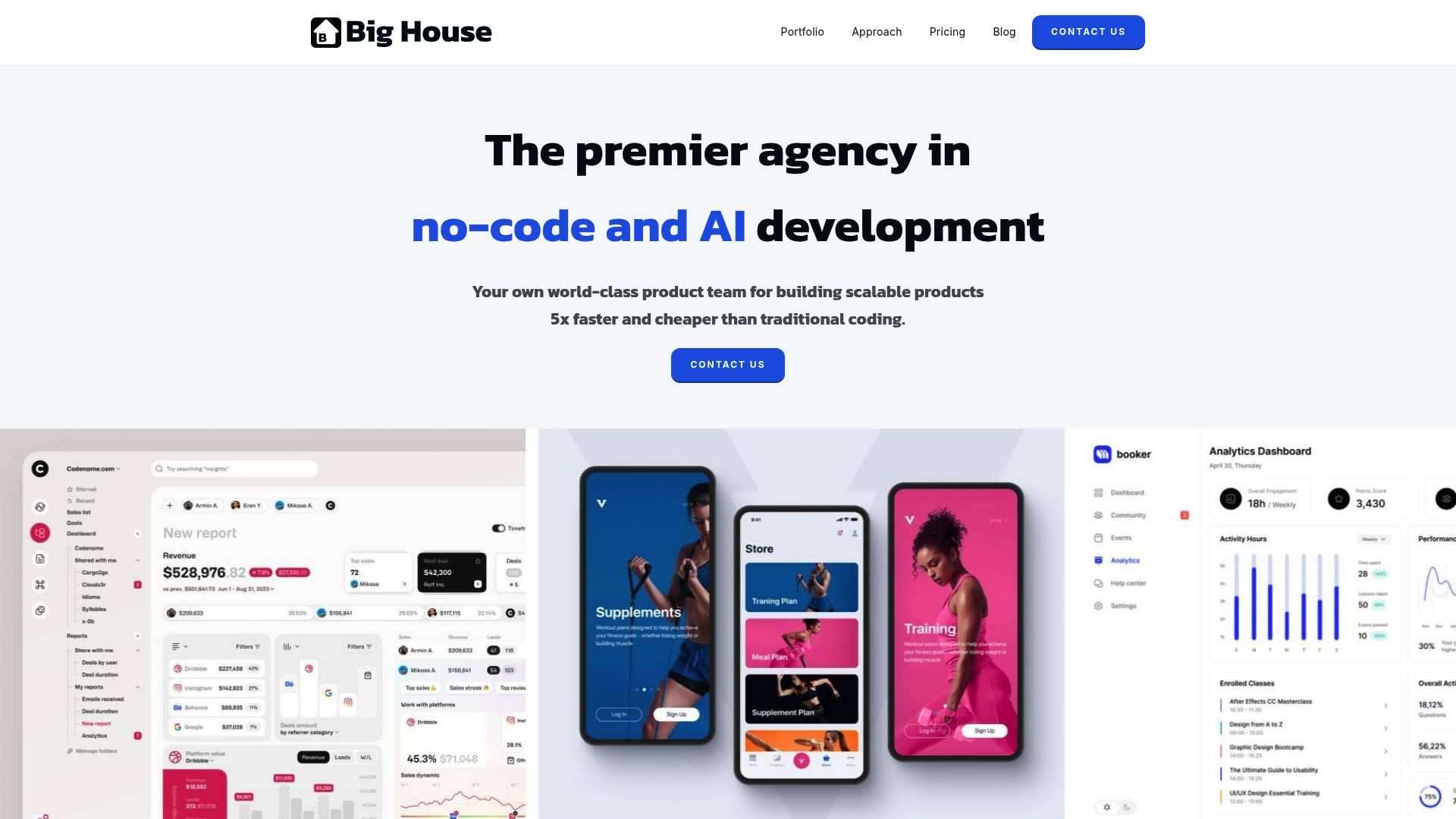
Their pricing is designed for flexibility, including Basic (ideal for MVPs), Growth (for accelerated builds), and Enterprise (custom solutions). Full details are available on their pricing page. Core features include rapid MVP launches, internal tools, UI/UX design, AI integration, and comprehensive support throughout the product lifecycle.
What makes Big House Technologies a leader among nocode startups is their proven ability to deliver 5x faster than traditional agencies, offering significant cost savings. Their process is collaborative and user-centric, ensuring that every solution is tailored to client needs. The agency works closely with startups, enterprises, and business leaders in diverse sectors such as SaaS, HR, oil & gas, and agriculture.
Pros:
- Speedy delivery and expert QA
- Deep nocode/AI knowledge
- Flexible engagement and real success stories
Cons:
- Agency-driven model may not suit DIY users
- Not a traditional SaaS platform
Their unique selling points include deep technical expertise and a collaborative approach, making them ideal for scaling startups and large organizations alike. For founders interested in building scalable MVPs efficiently, check out this guide on Building Scalable MVPs with No-Code.
Softr
Softr is one of the most versatile nocode startups for transforming Airtable data into robust web apps and client portals—no coding needed. Its drag-and-drop builder, user authentication, and membership management make it a favorite for fast, secure deployments.
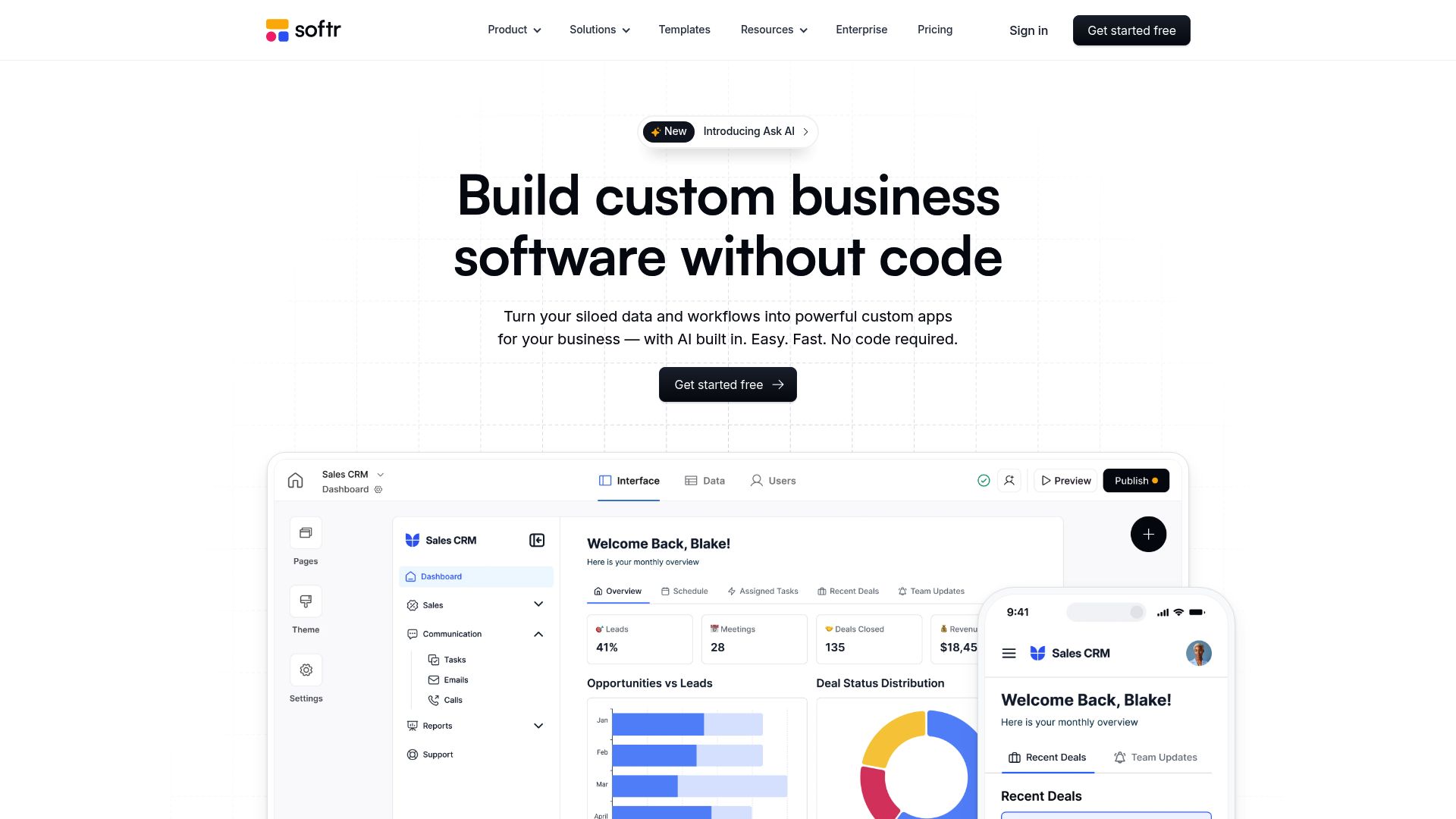
Pricing ranges from a generous free plan to paid tiers starting at $49/month (Basic) up to $269/month (Business). Softr’s integrations with Zapier, Stripe, and Google Analytics simplify workflows for growing teams.
Softr’s core strengths lie in its rapid app deployment and an extensive library of templates. The platform’s seamless Airtable integration allows users to build internal tools, client portals, and digital products in record time. With an intuitive interface and active community, Softr reduces the learning curve for newcomers to nocode startups.
Pros:
- Intuitive UI and quick onboarding
- Active support and community resources
- Robust Airtable integration
Cons:
- Limited flexibility outside Airtable
- Advanced features require higher-tier plans
Softr is best for SMBs, agencies, consultants, educators, and any team needing to launch client-facing tools quickly. Its unique selling point is delivering a fast go-to-market solution for internal tools and client portals, solidifying its spot among top nocode startups.
Stacker
Stacker earns its place among leading nocode startups by enabling teams to build secure internal tools and customer portals from existing data sources. With pricing starting at $59/month and custom options for enterprises, Stacker is designed for serious business applications.
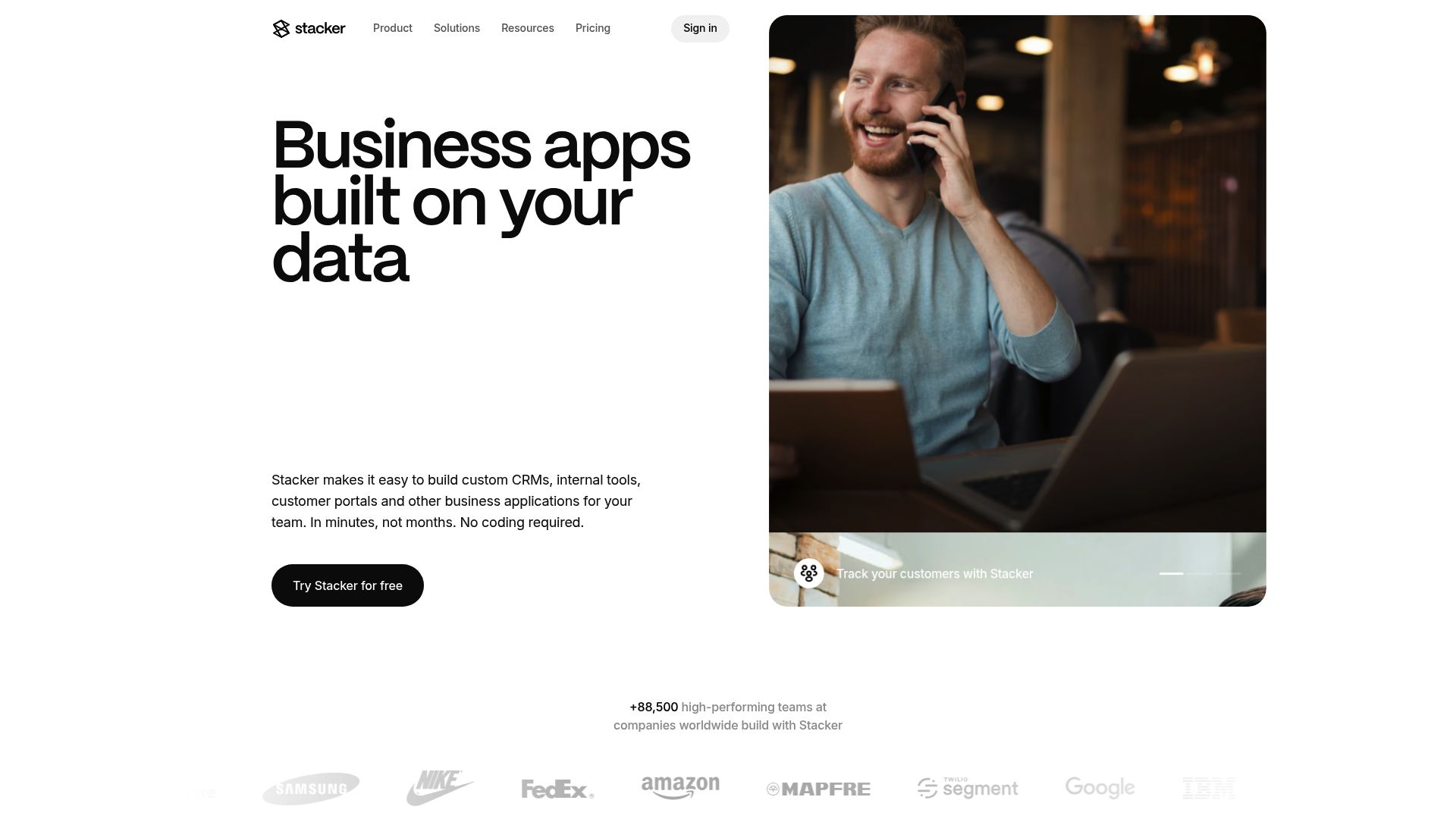
The platform connects seamlessly with Airtable, Google Sheets, and Salesforce, allowing users to automate workflows and manage permissions at a granular level. White-labeling options help businesses maintain brand consistency.
Stacker’s enterprise-ready features appeal to operations teams, project managers, and customer support departments. Its focus on security and robust integrations makes it a standout choice among nocode startups for organizations scaling their internal processes.
Pros:
- Versatile integrations
- Granular permissions
- Strong focus on data security
Cons:
- Limited visual customization
- Higher price point for small startups
Stacker’s unique selling point is empowering non-technical teams to create custom business apps without IT bottlenecks. For enterprises looking to scale securely, Stacker is a top contender in the nocode startups arena.
Glide
Glide reimagines what nocode startups can achieve by transforming Google Sheets or Excel data into sleek mobile and web apps. Its free plan makes it accessible, while paid options range from $25/month (Starter) to $249/month (Business).
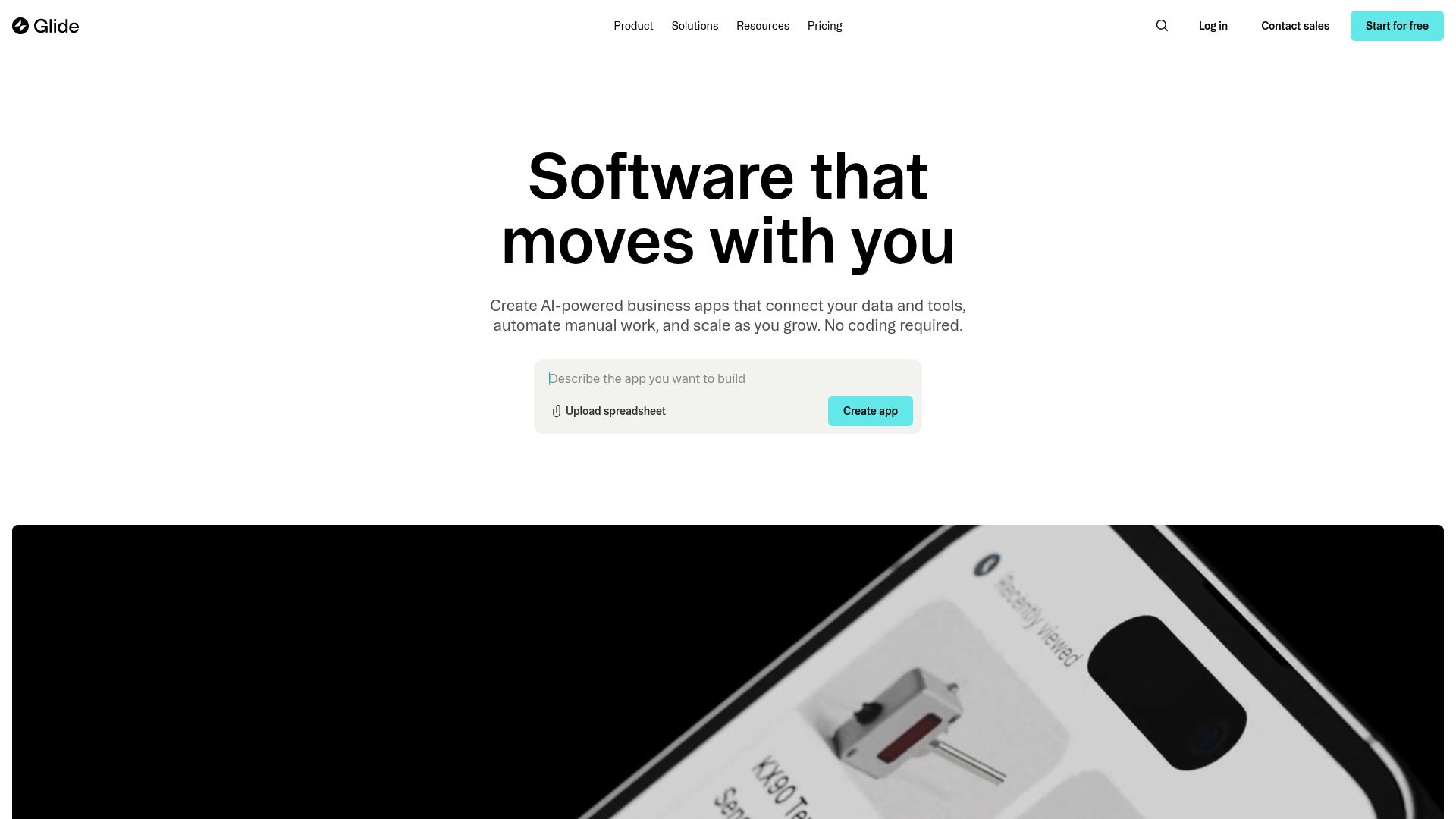
Key features include real-time data sync, customizable templates, user authentication, and the ability to publish to both web and mobile. Glide’s strength is its rapid app creation—users can go from spreadsheet to fully functional app in minutes.
Glide is particularly popular with educators, non-profits, SMBs, event organizers, and HR teams. Its focus on mobile-first, spreadsheet-driven solutions positions it as a leader among nocode startups for quick prototyping and deployment.
Pros:
- User-friendly interface
- Fast app development
- Active template marketplace
Cons:
- Limited for complex applications
- Heavily reliant on spreadsheet data
Glide’s unique selling point is its unparalleled speed and simplicity, making it the go-to choice for those seeking mobile-first applications among nocode startups.
Bildr
Bildr is a visual development platform that bridges the gap between nocode and low-code, making it a standout among nocode startups for advanced web app development. With a free plan and paid options starting at $29/month (Pro), Bildr is accessible for startups and scaling businesses alike.
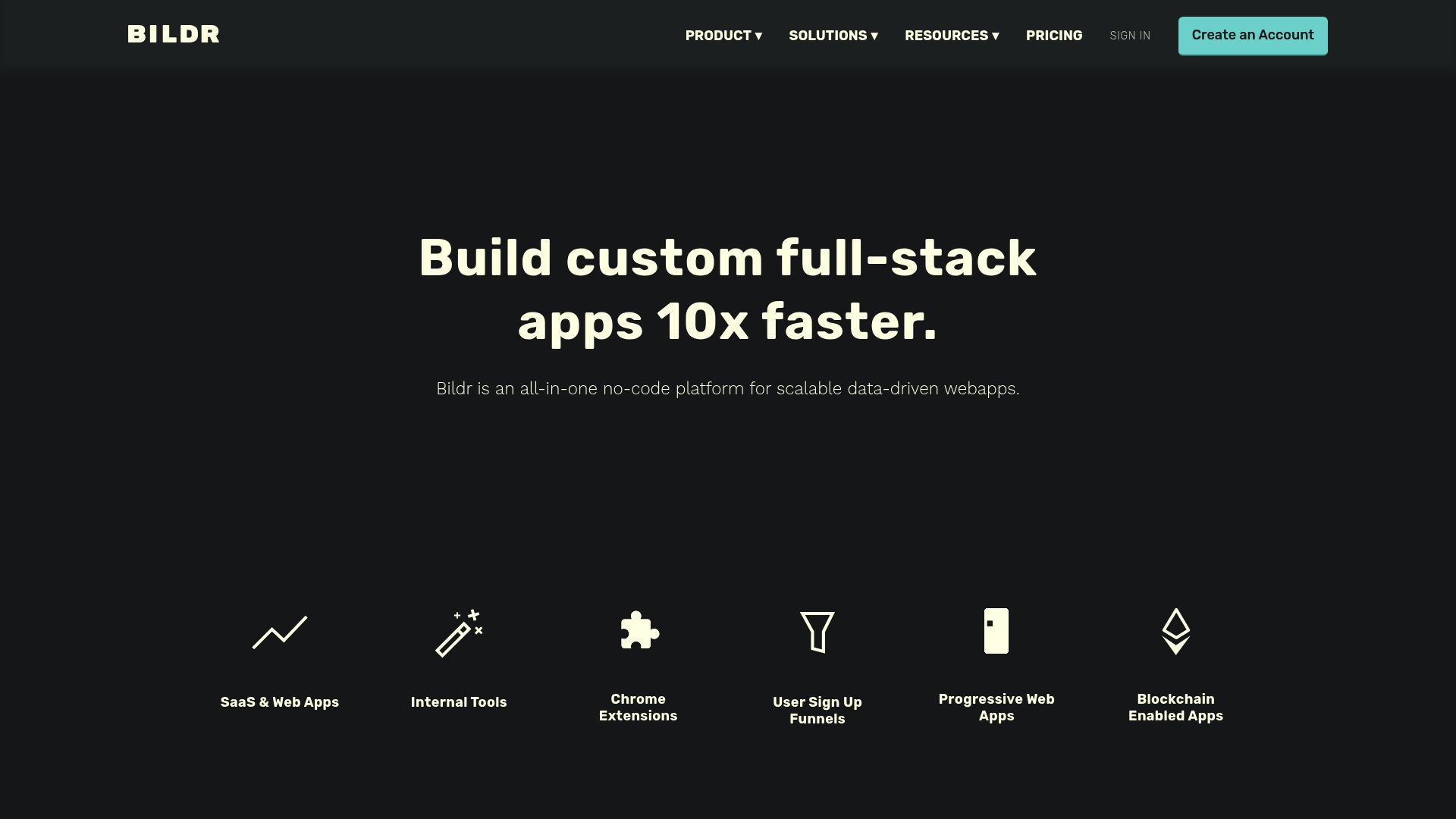
Core features include a drag-and-drop editor, advanced workflow automation, JavaScript extensibility, and robust integration via APIs and webhooks. This blend of visual simplicity and developer-level customization sets Bildr apart in the nocode startups landscape.
Bildr targets startups, SaaS founders, designers, and technical entrepreneurs who need both flexibility and full design control. While it offers high customization and developer-friendly features, beginners may find the learning curve steeper. The community is smaller but growing.
Pros:
- High level of customization
- Developer-friendly with JavaScript support
- Responsive support team
Cons:
- Steeper learning curve for newcomers
- Smaller user base
Bildr’s unique selling point is its hybrid approach, allowing users to scale apps from simple prototypes to complex, production-ready solutions—an essential trait for future-ready nocode startups.
Pory
Pory is carving a niche among nocode startups by focusing exclusively on membership websites, directories, and client portals powered by Airtable. Its pricing is competitive, with a free plan and paid tiers from $18/month (Starter) to $72/month (Business).
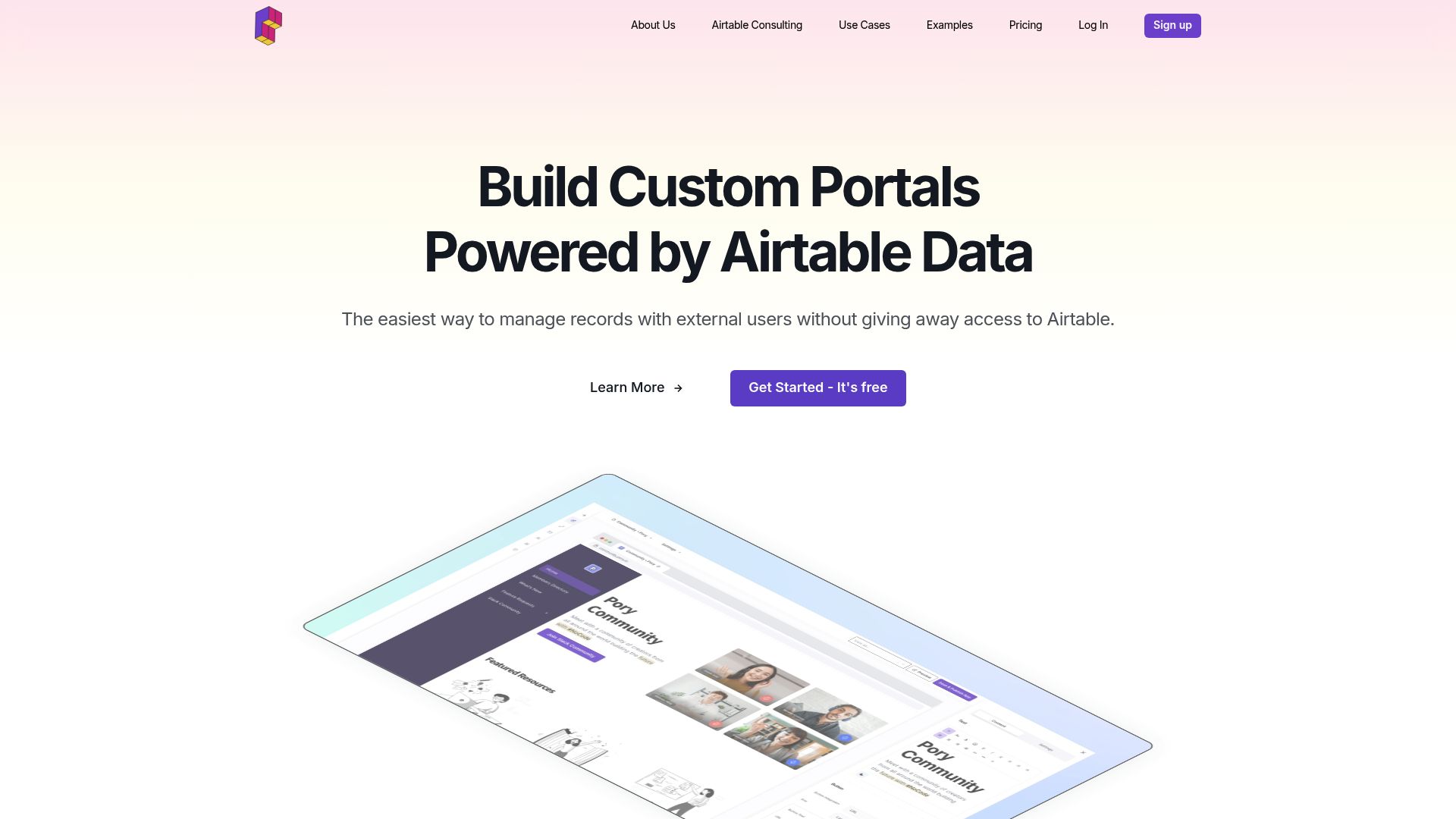
The platform’s core features include dynamic content management from Airtable, member management, integrated payments, and custom domains. Pory’s simplicity means users can launch membership sites in hours, not weeks, making it perfect for community managers, creators, agencies, and non-profits.
Pory’s focus on ease of use and affordability makes it a favorite among nocode startups for those who want to launch and manage membership or directory sites without technical barriers.
Pros:
- Affordable pricing
- Airtable-centric design
- Easy to maintain and update
Cons:
- Limited to Airtable as backend
- Less suitable for complex workflows
Pory’s unique selling point is its ability to deliver fast, simple solutions for membership and directory sites, filling a crucial gap in the nocode startups ecosystem.
WeWeb
WeWeb elevates nocode startups to new heights by offering a front-end builder that connects to any backend or API, enabling pixel-perfect web apps. With a free plan and paid options starting at $29/month (Pro), WeWeb is a versatile choice for agencies, SaaS startups, and product teams.
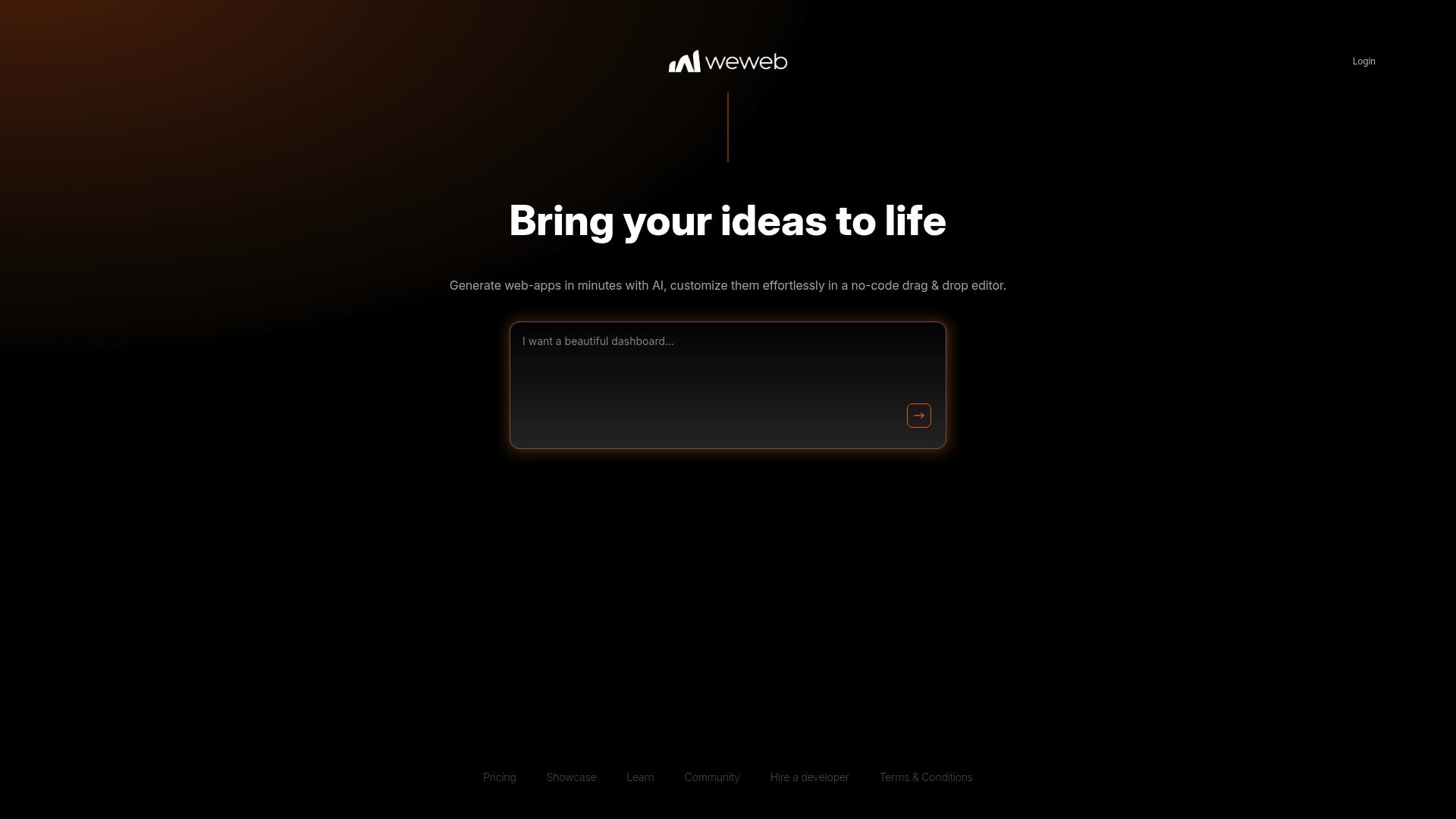
Key features include a visual front-end builder, API integration, custom logic, responsive design, and CMS capabilities. WeWeb’s flexibility allows for unlimited design options, making it ideal for professional-grade applications.
While WeWeb offers strong API support and scalable architecture, it requires a bit more technical understanding compared to other nocode startups. Backend services aren’t included, so users must connect their own data sources.
Pros:
- Highly customizable front-end
- Strong API and integration support
- Scalable for complex applications
Cons:
- Requires more technical know-how
- Backend not included
WeWeb’s unique selling point is advanced front-end design for professional web apps, making it a top pick for design-focused nocode startups aiming for scalability and flexibility.
Comparison Table: Core Features & Pricing
| Startup | Best For | Core Features | Starting Price |
|---|---|---|---|
| Big House Technologies | MVPs, Custom Solutions | End-to-end dev, AI, UI/UX, QA | Custom/Quote |
| Softr | Airtable Apps, Client Portals | Drag & drop, Auth, Membership, Integrations | Free / $49/mo |
| Stacker | Internal Tools, Enterprises | Data integrations, Permissions, Automation | $59/mo |
| Glide | Mobile Apps, SMBs, Nonprofits | Spreadsheet sync, Templates, Auth | Free / $25/mo |
| Bildr | Advanced Web Apps, SaaS | Visual dev, JS, APIs, Low-code | Free / $29/mo |
| Pory | Membership, Directories | Airtable CMS, Member mgmt, Payments | Free / $18/mo |
| WeWeb | Agencies, SaaS, Product Teams | Front-end builder, APIs, Custom logic | Free / $29/mo |
These nocode startups are reshaping how businesses build, launch, and scale digital products. Each offers a unique blend of features, pricing, and support to fit different needs—ensuring there’s a solution for every stage of growth.
Key Features and Capabilities to Look for in No-Code Startups
Choosing the right nocode startups can make or break your digital transformation. What should you look for? Let’s break down the essential features that define the best platforms in 2025.
Scalability and Customization
Scalability is the backbone of successful nocode startups. As your business grows, your tools must keep pace. Platforms like Bildr and WeWeb are engineered to handle increasing user loads and complex workflows without missing a beat.
Customization is equally vital. No two businesses are the same, so the ability to tweak layouts, logic, and data structures is a must. The best nocode startups provide drag-and-drop builders, custom code options, and reusable components for total flexibility.
Features to compare:
| Platform | Scalability | Customization Level |
|---|---|---|
| Bildr | High | Advanced |
| WeWeb | High | Advanced |
| Glide | Medium | Moderate |
When evaluating nocode startups, prioritize those that empower you to scale and adapt quickly.
Integration and Automation
Modern nocode startups shine when it comes to integration and automation. Seamless connections to popular tools—like Airtable, Google Sheets, and various APIs—allow you to build powerful apps that fit right into your workflow.
Automation tools reduce manual work, letting you focus on what matters. Stacker, for example, offers workflow automation that helps enterprise clients streamline operations. For a deeper dive into how these capabilities boost efficiency, check out the Benefits of No-Code for Enterprises.
Look for platforms that not only integrate easily but also make automation simple and reliable.
Security and Compliance
Security is non-negotiable for nocode startups, especially when handling sensitive data. Top platforms prioritize data protection, offering features like encryption, role-based access, and audit logs.
Compliance with standards such as GDPR or SOC 2 is now a baseline requirement. Stacker, for example, is known for its enterprise-grade security. To see how leading platforms compare in this area, explore this Security and Compliance in No-Code Platforms resource.
Always assess the security roadmap and compliance credentials before selecting your nocode startups partner.
Support and Community
A vibrant community and responsive support can make your journey with nocode startups much smoother. Platforms like Softr and Glide have active forums, abundant templates, and step-by-step guides to help users succeed.
Training resources, onboarding videos, and documentation can shorten the learning curve. When you hit a roadblock, fast support means less downtime and more progress.
Prioritize nocode startups that invest in their user base, making it easy for you to learn, share, and grow.
How to Choose the Right No-Code Startup for Your Needs
Choosing the right nocode startups in today's fast-evolving tech landscape can feel overwhelming. With so many options, it's crucial to match the right platform to your business goals, budget, and long-term vision. Let's break down the most important factors to consider so you can confidently pick the best fit for your next project.
Assessing Your Project Requirements
Before diving into any nocode startups, clarify what you want to achieve. Are you building an MVP to test an idea, an internal tool for your team, or a client-facing portal? Each use case may require different features, integrations, and levels of customization.
For example, startups often choose Big House Technologies when they need to launch an MVP quickly and efficiently. Consider which platforms offer the workflows, templates, or data connections you need. If you're unsure where to start, check out this helpful guide on How to Choose No-Code Platforms for a step-by-step approach to narrowing your options.
Make a checklist of must-have features and desired outcomes. This ensures the nocode startups you evaluate align with your strategic objectives.
Budget Considerations
Budget plays a major role in your selection process. Nocode startups offer a range of pricing models, from generous free tiers to advanced enterprise plans. However, it's important to look beyond the sticker price.
| Plan Type | Typical Features | Ideal For | Cost Range |
|---|---|---|---|
| Free | Basic templates, limited users | Testing, solo makers | $0 |
| Starter | More integrations, support | Small teams, SMBs | $18–$59/month |
| Business | Advanced features, scaling | Growing startups | $49–$269/month |
| Enterprise | Customization, priority support | Large organizations | Custom pricing |
Factor in potential hidden costs, such as integrations, additional user seats, or premium support. Compare the long-term ROI of nocode startups to traditional development—no-code often delivers faster launches at a fraction of the price.
Evaluating Platform Ecosystem and Longevity
The ecosystem and future-proofing of nocode startups should never be underestimated. Look for platforms with active communities, frequent updates, and robust third-party resources. These factors indicate strong support and ongoing innovation.
Vendor lock-in is a real risk. If a platform shuts down or changes pricing, your business could be left scrambling. Choose nocode startups that offer data export options, open APIs, or migration paths to minimize this risk.
A vibrant ecosystem ensures you'll have access to plugins, templates, and expert advice as your needs evolve.
Getting Started and Scaling Up
Once you've shortlisted a few nocode startups, explore their onboarding resources. Many platforms provide tutorials, webinars, and community forums to help you get started.
Begin with a small project to test the waters. As your needs grow, evaluate whether the platform can scale with you or if you'll need to expand to more advanced tools. Building with future growth in mind helps ensure your app remains agile and adaptable.
With the right approach, nocode startups can empower you to bring ideas to life faster than ever—no coding required.
If you’re feeling inspired by these innovative no-code startups and thinking about bringing your own idea to life, there’s never been a better time to start. The difference between an idea and a launched product often comes down to speed—and with the right tools and expert support, you can move from concept to MVP faster than you imagined. Whether you’re building for your business or exploring a side project, you don’t have to wait months to see results. Ready to take the next step? Launch Your MVP in Weeks, Not Months and see what’s possible!




About Big House
Big House is committed to 1) developing robust internal tools for enterprises, and 2) crafting minimum viable products (MVPs) that help startups and entrepreneurs bring their visions to life.
If you'd like to explore how we can build technology for you, get in touch. We'd be excited to discuss what you have in mind.
Other Articles
Discover the top 7 AI apps iPhone users need in 2025 to boost productivity, creativity, and convenience Explore must have AI tools and tips for smarter workflows
Discover the 7 best countries to hire Bubble developers in 2026 with insights on cost, talent, and reliability Learn how to build your global Bubble team today
Discover how bubble experts transform enterprise workflows with no-code automation, scalable systems, and rapid deployment for modern businesses.

